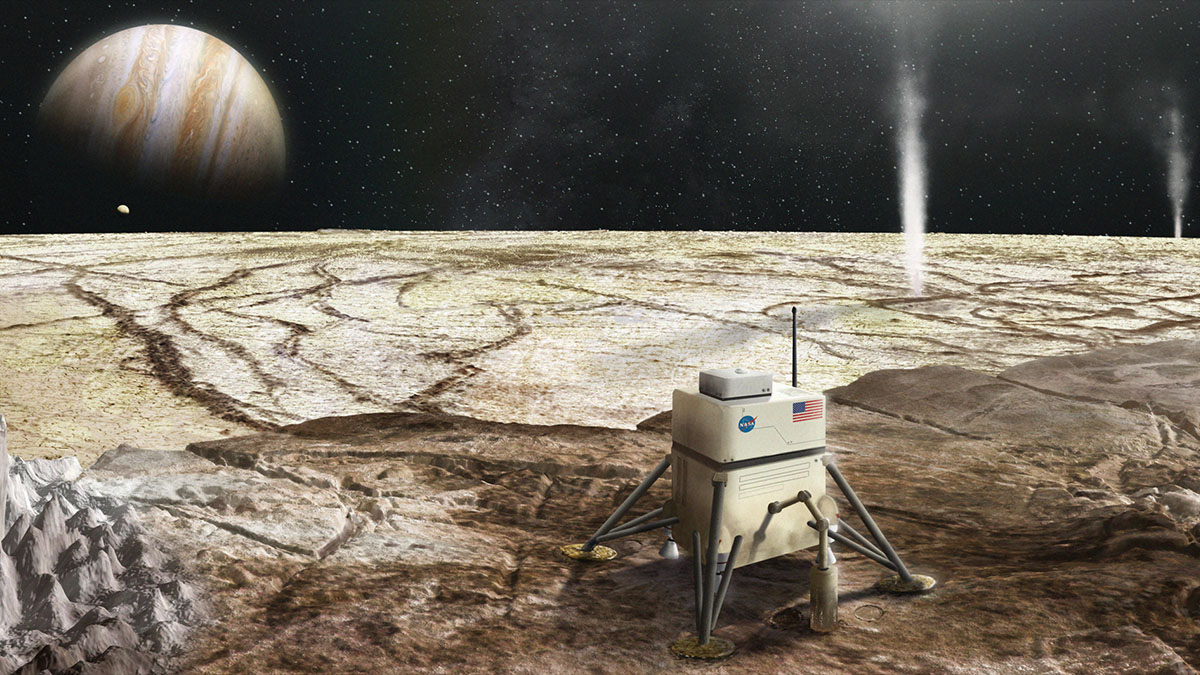are we ready to go roving on europa?

We’ve long known that there was an ocean or something very much like it under the icy crust of the Jovian moon Europa, and that this icy wasteland offers one of the best chances to find life in our solar system despite living in a very turbulent and radioactive neighborhood. And now, the same astronomer who stunned Pluto before the IAU’s planetary double-tap, Mike Brown, found strong evidence that Europa’s ocean is leaking to the surface and is salty like ours. Basically, a short summary of the elegant details I encourage you to read from Dr. Brown himself is that the chemical residues on the moon’s surface match up with exactly what we’d expect if it had a thick, salty, liquid ocean which periodically rises through the cracks in the ice and leaves deposits as it recedes with the tides. We could learn even more, but radiation scatters other compounds we could measure from our post right here on the blue marble. So far, though, so good for bacteria and multicellular colonies that could potentially call Europa home.
Now it’s very important to know that organic chemical signatures do not always mean life and a distinct lack of experience with alien organisms on our part means that until we actually see one with our probes and run several hundred tests and a few thousand reviews of the data from all those tests, we won’t know if we found alien organisms. Well, unless an alien fish just wiggles to the camera and waves hello. That would speed up the announcement. But in all seriousness, as far as cases for promising habitats go, everything we find about Europa makes it look better and better for exploration. The only problem is that the ocean where so much life could exist lies so far down, in some cases under several miles of ice. Drilling through it is complicated and really dangerous for robotic probes, so the focus has been on trying to get access to the ocean with a minimum of digging, using something like a rover with a tiny submarine to explore the shallows. If what Brown has found is any indication, we might find even more about Europa’s chemistry this way since some of the more scientifically interesting chemicals could just float up to us.
However, keep in mind that the moon’s surface is bathed by radiation and microorganisms that evolve under several miles of ice and meters of water would be instantly fried to a crisp if they’re exposed to it, leaving promising but ambiguous residue on the surface. For anything more alien and complex than extremophiles that may have even survived the trip from Earth, we will need to be ready to dive deep and look far and wide. It’s actually another reason for human exploration of the outer solar system. Robots can only be made so clever in space, and they’re not good at dealing with the unknown and the uncertain, having no instinct or useful previous experiences from which to make decisions about new environments. Having humans guide them as they look for alien life on an unknown, largely unfamiliar world would be a terrific fusion of our brainpower and machine endurance that could lead to something as big as proof that we’re not alone. That knowledge alone should justify the effort of making the trip.





